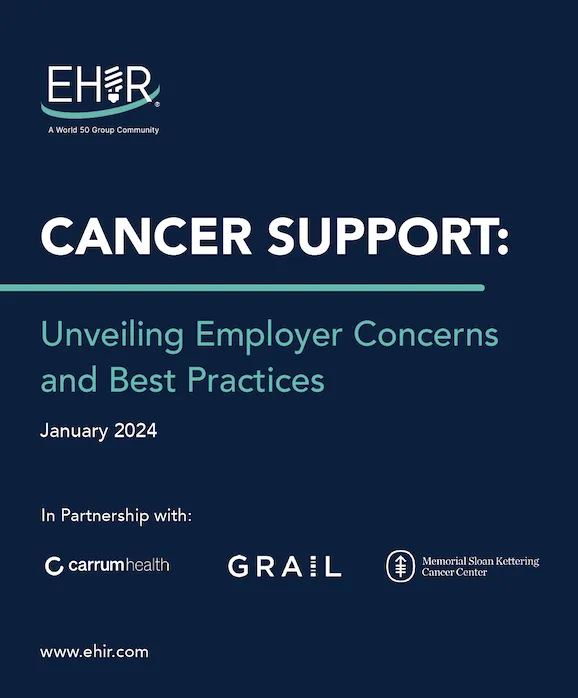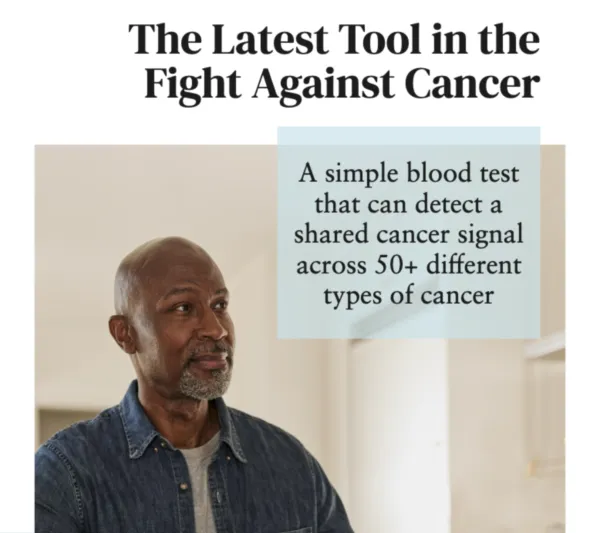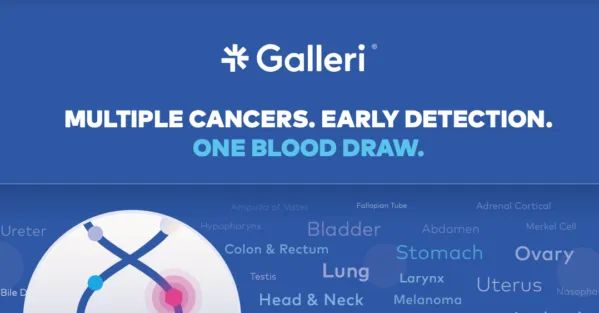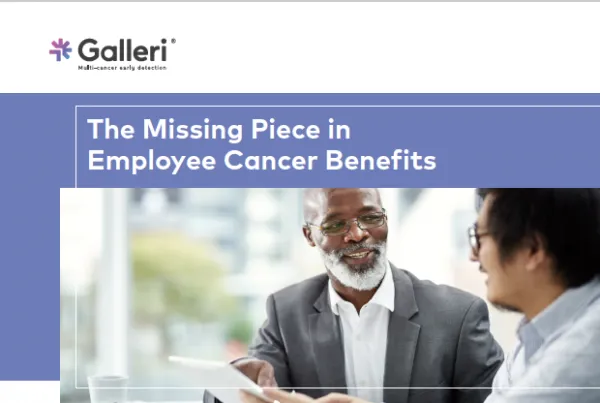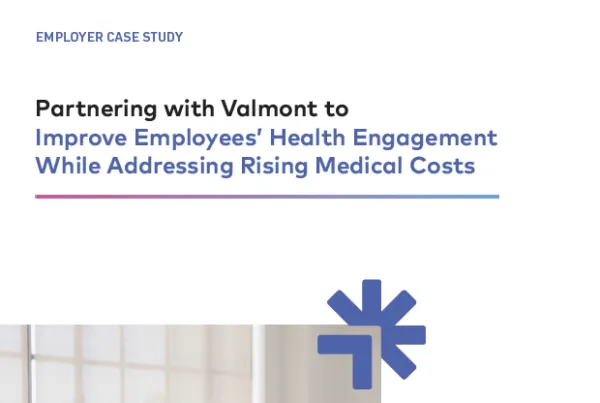~70% of cancer deaths are from cancers employees are not being screened for1,2*
Only ~30% of cancer deaths have recommended screening available.1,2 The Galleri® multi-cancer early detection test can help fill that critical gap in your company’s cancer strategy by screening for a "fingerprint" for many of the deadliest cancers with a single blood test. 1,3
The Galleri test does not detect a signal for all cancers and not all cancers can be detected in the blood. False positive and false negative results do occur. The Galleri test should be used in addition to healthcare provider recommended screening tests.
*Assumes screening is available for all prostate, breast, cervical, and colorectal cancer cases and 43% of lung cancer cases (based on the estimated proportion of lung cancers that occur in screen-eligible individuals older than 40 years).

The Galleri test does not detect a signal for all cancers and not all cancers can be detected in the blood. False positive and false negative results do occur. The Galleri test should be used in addition to healthcare provider recommended screening tests.
*Assumes screening is available for all prostate, breast, cervical, and colorectal cancer cases and 43% of lung cancer cases (based on the estimated proportion of lung cancers that occur in screen-eligible individuals older than 40 years).
How Galleri Works
All cells in your body, including cancer cells, shed DNA fragments into the bloodstream when they complete their life cycle and die.
The Galleri test screens for DNA fragments from cancer growing in the body. Although there are many types of cancer, the DNA fragments act like a unique “fingerprint” of cancer.3,8,9 The results also provide direction to your doctor on the cancer’s origin and to help guide the next steps in diagnosis.10*
*In a clinical study, Cancer Signal Origin (CSO) prediction accuracy was 93.4% for participants with a cancer diagnosis after a Cancer Signal Detected test result.
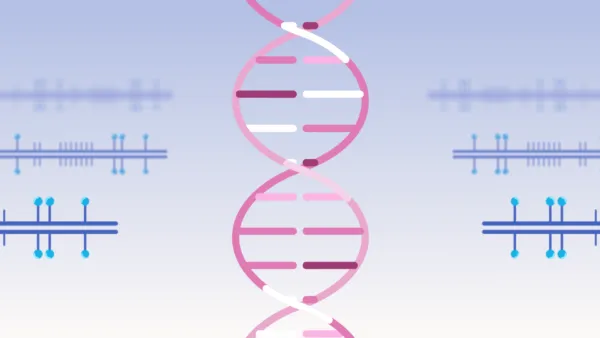
Cancer and Health Equity
Research shows that cancer screening rates are substantially lower among those from racial/ethnic minorities compared to their white counterparts.7 The Galleri test offers equitable access to multi-cancer screening with just 1 blood draw, which can be completed almost anywhere: workplace events, home visits, and 6,600+ partner labs nationwide.
Galleri should be used in addition to healthcare provider recommended screening tests.

The Galleri Experience
We partner with you to leverage customizable emails, direct mailers, flyers/posters, presentations, landing page and more to drive employee awareness and education about the Galleri test.
Employees can request their test through the Galleri portal. Once ordered by a physician, the test kit ships directly to the employee with information on how to schedule a blood draw at a nearby partner clinic, at an onsite event, or in their own home.
Results are returned about 2 weeks after GRAIL receives the sample in our lab, and all “Cancer Signal Detected” results are shared live with the employee by a healthcare professional.
All employees who receive a “Cancer Signal Detected” result are contacted by the GRAIL Patient Advocate who, if necessary, assists with finding an in-network primary care provider (PCP) to complete diagnostic next steps and connect the employee with other relevant benefits. GRAIL also provides access to expert patient navigation support for the employee’s PCP.
To support and validate our technology, studies are being performed at leading health systems and academic medical centers in the US and United Kingdom. Adding the Galleri test to guideline recommended screening tests allows you to do more to screen for cancer.13
We collaborated with leading cancer institutes to study the Galleri test, including



How Galleri has helped others
Resources and Articles
Get Started
Fill out this form and we’ll reach out to discuss how the Galleri test could positively impact your employees and organization
-
What describes you best?
-
What are you looking for?
-
Fill in the form
Do you represent a first responder or firefighter organization? Use this form instead.
By submitting this form, you agree to GRAIL’s use of this information to contact you, including for marketing purposes. Please do not include any sensitive or confidential information, including health information. For more information, please refer to our privacy notice.
By submitting this form, you agree to GRAIL’s use of this information to contact you, including for marketing purposes. Please do not include any sensitive or confidential information, including health information. For more information, please refer to our privacy notice.
By submitting this form, you agree to GRAIL’s use of this information to contact you, including for marketing purposes. Please do not include any sensitive or confidential information, including health information. For more information, please refer to our privacy notice.
By submitting this form, you agree to GRAIL’s use of this information to contact you, including for marketing purposes. Please do not include any sensitive or confidential information, including health information. For more information, please refer to our privacy notice.
By submitting this form, you agree to GRAIL’s use of this information to contact you, including for marketing purposes. Please do not include any sensitive or confidential information, including health information. For more information, please refer to our privacy notice.
Frequently Asked Questions
Cancers growing in the body shed DNA into the bloodstream.8,9 Although there are many types of cancer, the DNA fragments can act like a unique “fingerprint” of cancer. This Galleri test screens for many of the deadliest cancers before they become symptomatic, including those without recommended screening tests.1,3 When there is a Cancer Signal Detected, the results also provide predicted Cancer Signal Origin* to help your healthcare provider determine the next steps for diagnosis.10
*GRAIL, Inc. Data on file: VV-TMF-59592
The Galleri test is recommended for use in adults with an elevated risk for cancer, such as those aged 50 or older.
The Galleri test is intended to be used in addition to, and not replace, other cancer screening tests your healthcare provider recommends.
Use of Galleri is not recommended in individuals who are pregnant, 21 years old or younger, or undergoing active cancer treatment.
Once an employee's test has been ordered by a healthcare provider, they will have access to an online blood draw finder with GRAIL's 6,600+ lab partner locations, from which they can select their desired appointment location, date and time. If they prefer, the employee can also call GRAIL customer service to schedule an in-home blood draw. The employee will need a copy of their completed test requisition form and an unopened Galleri specimen collection kit for the blood draw.
The Galleri test is intended to be used in addition to — and not replace — other cancer screening tests your healthcare provider recommends. Single-cancer screening tests are recommended because they have been proven to save lives by detecting cancer early. Adding the Galleri test to annual wellness visits allows you to go further with cancer screenings.
The Galleri test does not detect a signal for all cancers and not all cancers can be detected in the blood.
All employees who receive a Cancer Signal Detected result on their Galleri test receive a phone call from a trained healthcare provider to explain the results and ensure the employee has a primary care physician (PCP) with whom the results can be shared. A GRAIL patient advocate can connect the employee's PCP with expert peer-to-peer consultation services regarding next steps for diagnostic testing. If the employee does not currently have a PCP, the patient advocate will provide them with local, in-network primary care navigation support. Once a PCP is found, the patient advocate can provide connections to expert peer-to-peer physician support and conducts ongoing follow-up with the employee to confirm the appropriate next steps are taken towards diagnostic evaluation.
A Cancer Signal Detected test result is not a cancer diagnosis and requires follow-up diagnostic testing which may include lab work or imaging ordered by your
healthcare provider to confirm cancer.
The Galleri test is recommended for use in adults with an elevated risk for cancer, such as those age 50 or older. The test does not detect all cancers and should be used in addition to routine cancer screening tests recommended by a healthcare provider. The Galleri test is intended to detect cancer signals and predict where in the body the cancer signal is located. Use of the test is not recommended in individuals who are pregnant, 21 years old or younger, or undergoing active cancer treatment.
Results should be interpreted by a healthcare provider in the context of medical history, clinical signs, and symptoms. A test result of No Cancer Signal Detected does not rule out cancer. A test result of Cancer Signal Detected requires confirmatory diagnostic evaluation by medically established procedures (e.g., imaging) to confirm cancer.
If cancer is not confirmed with further testing, it could mean that cancer is not present or testing was insufficient to detect cancer, including due to the cancer being located in a different part of the body. False positive (a cancer signal detected when cancer is not present) and false negative (a cancer signal not detected when cancer is present) test results do occur. Rx only.
The GRAIL clinical laboratory is certified under the Clinical Laboratory Improvement Amendments of 1988 (CLIA) and accredited by the College of American Pathologists. The Galleri test was developed — and its performance characteristics were determined — by GRAIL. The Galleri test has not been cleared or approved by the Food and Drug Administration. The GRAIL clinical laboratory is regulated under CLIA to perform high-complexity testing. The Galleri test is intended for clinical purposes
- American Cancer Society. Estimated deaths per year in 2022. Cancer facts & figures 2022. https://www.cancer.org/research/cancer-facts-statistics/all-cancer-facts-figures/cancer-facts-figures-2022.html [GRAIL, Inc. Data on file: GA-2021-0065]
- US Preventive Services Task Force. A,B,C grade recommendations, cancer, screenings [cited 2023 Oct 23]. https://www.uspreventiveservicestaskforce.org/uspstf/topic_search_results
- Market research data on file GA-2022-0089.
- Surveillance, Epidemiology, and End Results (SEER) Program SEER*Stat Database: Incidence - SEER 18 Regs Research Data, Nov 2017 Sub. Includes persons aged 50+ diagnosed 2006-2015. [GRAIL, Inc. Data on file: GA-2021-0065.]
- Reddy SR, et al. Cost of cancer management by stage at diagnosis among Medicare beneficiaries. Curr Med Res Opin. 2022;38(8):1285-1294. DOI: doi.org/10.1080/03007995.2022.2047536.
- Business Group on Health. 2023 Large Employers’ Health Care Strategy and Plan Design Survey. August 2022. Available at: https://www.businessgrouphealth.org/resources/2023-large-employers-health-care-strategy-survey-intro.
- Hubbell E, et al. Modeled reductions in late-stage cancer with a multi-cancer early detection test. Cancer Epidemiol Biomarkers Prev. 2021;30(3):460-468. DOI: doi.org/10.1158/1055-9965.EPI-20-1134
- Analysis of IQVIA Pharmetrics claims database completed by GRAIL, Inc. Data on File. GA-2023-0209
- Klein EA, Richards D, Cohn A, et al. Clinical validation of a targeted methylation-based multi-cancer early detection test using an independent validation set. Ann Oncol. 2021 Sep;32(9):1167-77. doi: 10.1016/j.annonc.2021.05.806
- Schrag D, Beer TM, McDonnell CH, et al. Blood-based tests for multi-cancer early detection (PATHFINDER): a prospective cohort study. Lancet. 2023;402:1251-1260. doi: 10.1016/S0140-6736(23)01700-2
- Liu MC, Oxnard GR, Klein EA, et al. Sensitive and specific multi-cancer detection and localization using methylation signatures in cell-free DNA. Ann Oncol. 2020 Mar 30;31(6):745-59. doi: 10.1016/j.annonc.2020.02.011
- Thierry AR, El Messaoudi S, Gahan PB, et al. Origins, structures, and functions of circulating DNA in oncology. Cancer Metastasis Rev. 2016 Jul 8;35:347–76. doi: 10.1007/s10555-016-9629-x
- Hackshaw A, Cohen SS, Reichert H, et al. Estimating the population health impact of a multi-cancer early detection genomic blood test to complement existing screening in the US and UK. Br J Cancer. 2021;125(10):1432-1442. doi: 10.1038/s41416-021-01498-4.




